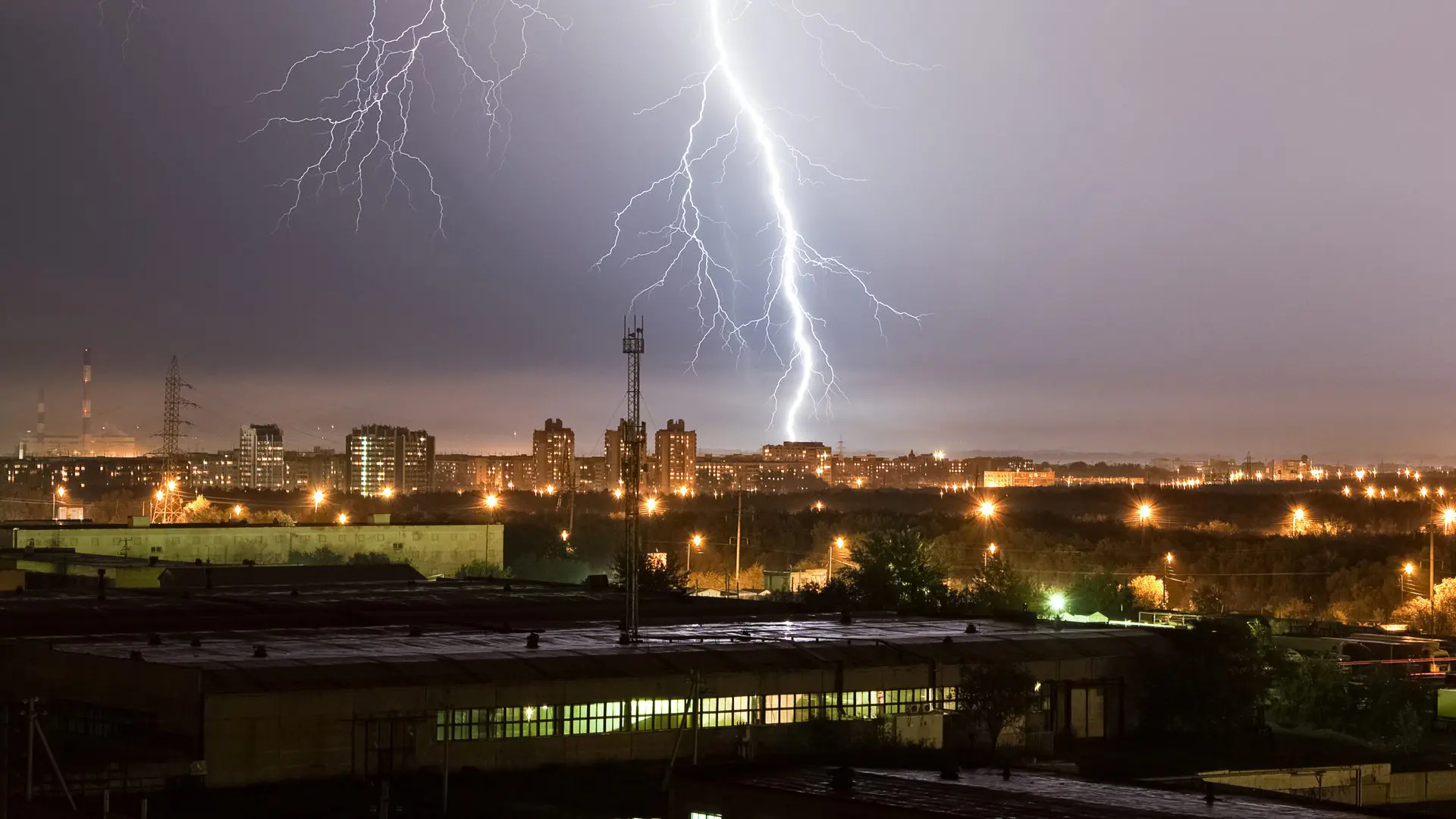WHEN THUNDER ROARS, GO INDOORS
Lightning is a leading cause of injury and death from weather-related hazards.
PREPARE NOW
-
Know your area’s risk of thunderstorms. They can occur year-round and at any hour.
-
Sign up for your community’s warning system. The Emergency Alert System (EAS) and National Oceanic and Atmospheric Administration (NOAA) Weather Radio also provide emergency alerts.
-
Identify sturdy buildings close to where you live, work, study, and play.
-
Cut down or trim trees that may be in danger of falling on your home.
-
Consider buying surge protectors, lightning rods, or a lightning protection system to protect your home, appliances, and electronic devices.
-
Secure outside furniture.
SURVIVE DURING
- When you receive a thunderstorm warning or hear thunder, go inside immediately. A sturdy building is the safest place to be during a thunderstorm. No place outside is safe. If you are caught outside in a thunderstorm, keeping moving towards safe shelter.
-
Immediately get off elevated areas such as hills, mountain ridges, or peaks.
-
Never lie flat on the ground.
-
Never shelter under an isolated tree.
-
Never use a cliff or rocky overhang for shelter.
-
Immediately get out of and away from ponds, lakes, and other bodies of water.
-
Pay attention to weather reports and warnings of thunderstorms. Be ready to change plans, if necessary, to be near shelter.
-
If indoors, avoid running water or using landline phones. Electricity can travel through plumbing and phone lines.
-
Protect your property. Unplug appliances and other electric devices.
-
If boating or swimming, get to land and find a sturdy, grounded shelter or vehicle immediately.
-
If necessary, take shelter in a car with a metal top and sides. Do not touch anything metal.
-
Avoid flooded roadways. Just six inches of fast-moving water can knock you down, and one foot of moving water can sweep your vehicle away.
BE SAFE AFTER
- Listen to authorities and weather forecasts for information on whether it is safe to go outside and instructions regarding potential flash flooding.
- Watch for fallen power lines and trees. Report them immediately.
FOR ALL EMERGENCIES: CORAC runs a HAM radio net and Signal groups. If communication goes out for any length of time, meet outside your local Church at 9 a.m. on Saturday mornings if it is safe to do so. Tell friends at Church now in case you can’t then. CORAC teams will be out looking for people to gather in and work with.






















0 Comments